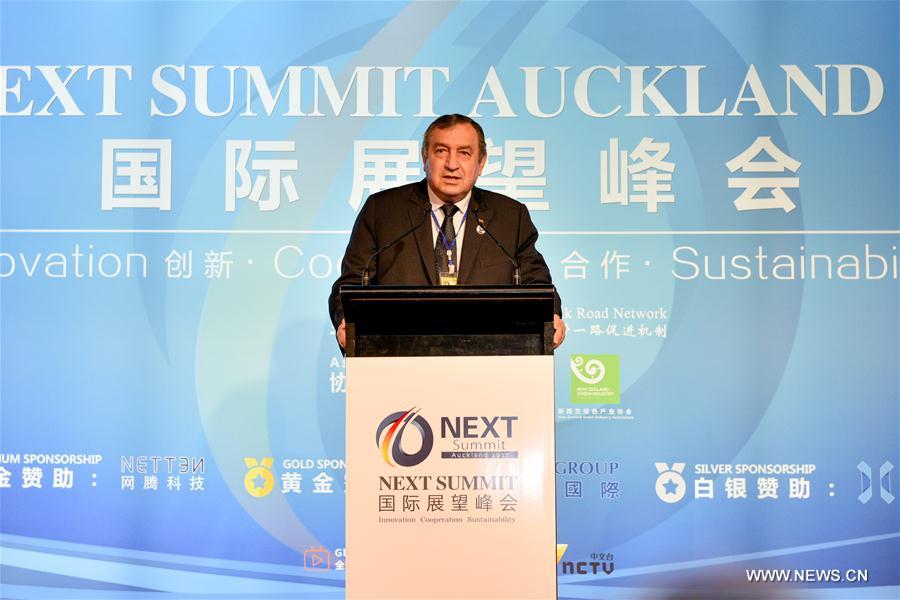New Zealand holds summit to discuss cooperation under Belt and Road Initiative
Some 400 delegates from academic and business circles in New Zealand gathered in Auckland Monday to discuss international cooperation under the China-proposed Belt and Road Initiative.
The first Next Summit, organized by the Oceania Silk Road Network along with New Zealand Green Industry Association and New Zealand Chinese Scientists Association, aims to promote international resource mobilization and capacity building through innovative cooperation among countries and regions, deepen international trade cooperation, and promote sustainable development, organizers said.

Former Egyptian Prime Minister Essam Sharaf speaks during the opening ceremony of the first Next Summit in Auckland, New Zealand, on Nov. 27, 2017. Some 400 delegates from academic and business circles in New Zealand gathered here Monday to discuss international cooperation under the China-proposed Belt and Road Initiative. [Photo/Xinhua]
In a message sent to the summit, United Nations Secretary-General Antonio Guterres said there are "clear synergies" between the UN's 2030 Agenda for Sustainable Development and the Belt and Road Initiative proposed by China.
Both frameworks strive to "stitch countries together in networks of trade and mutual gain," and both aim to "deepen global connectivity," Guterres said.
Vice Minister of Overseas Chinese Affairs Office of the State Council Xu Yousheng told the opening ceremony that the summit's focus on new-type globalization, innovative cooperation, and sustainable development is in line with the trend of the pursuit of peace, development and win-win cooperation.
Xu, also the vice president of the China Overseas Exchange Association, said the Belt and Road reflected the historic steps of the Chinese people's overseas migration, and it shows how Chinese reached out to the world.
The Silk Road Economic Belt and the 21st Century Maritime Silk Road Initiative was proposed by China in 2013 with the aim of building a trade, investment and infrastructure network connecting Asia with Europe and Africa along the ancient trade routes.
The summit, with the theme of "innovation, cooperation and sustainability," was also attended by political figures including Essam Sharaf, former prime minister of Egypt and president of Sharaf Sustainable Development Foundation, as well as enterprises and research institutes from China and New Zealand.
Summit organizers said the two countries share great room for cooperation to improve global governance and sustainable development.
This summit also discussed and shared new thoughts and best practices in these areas, as well as explored and shared new opportunities for international cooperation while taking the Belt and Road Initiative as a case study.
The summit was live broadcast globally via VR technology, so as to present the event in real time to those around the world who were unable to attend.